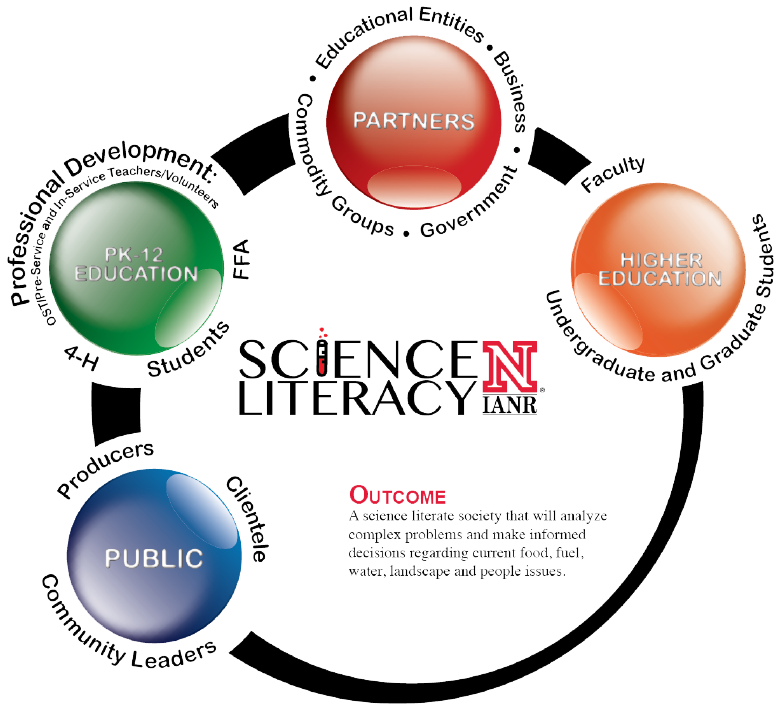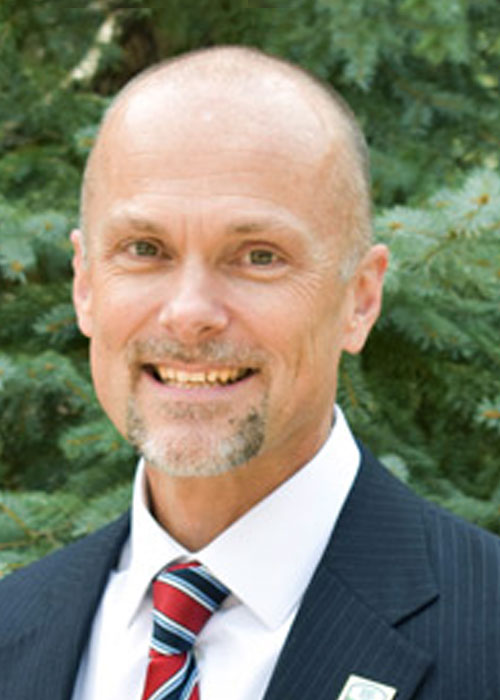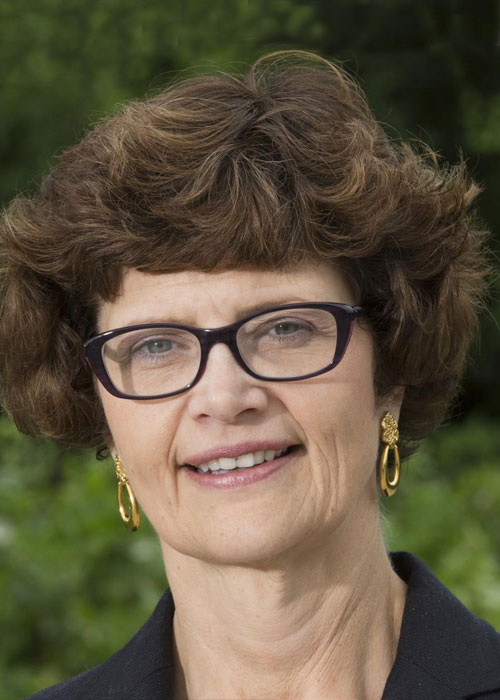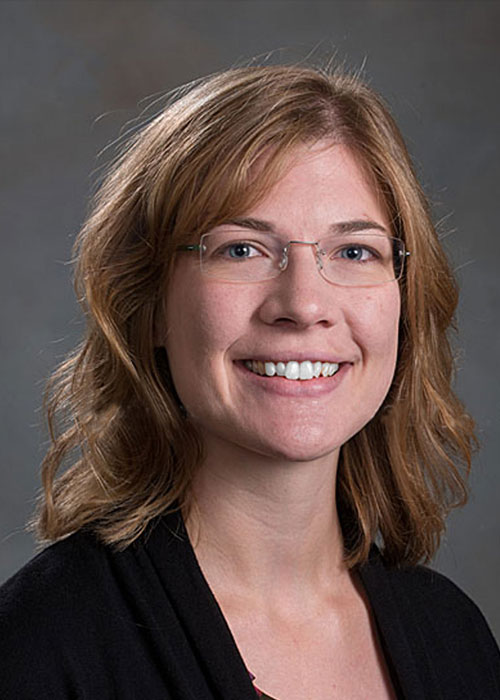The over-arching outcome of the Science Literacy Initiative is to develop:
"An enhanced capacity, both at the individual and collective levels, to make decisions grounded in science-informed analyses of complex, real-world systems and their associated challenges."
Part of the IANR Science Literacy Initiative mission is to inspire future generations to pursue careers that will solve the challenge of meeting the needs of a growing population. However, there is a bigger need to encourage a culture rooted in critical assessment and thoughtful implementation of the solutions developed by future science and engineering professionals. Community members need to be empowered to have meaningful discussions around tough topics like GMOs and climate change. Thoughtful and informed voters will select leaders and policy decisions that align with long-term solutions. Knowledgeable consumers will vote with their dollars and make informed decisions related to the health and well-being of themselves and their families.
The overall goal of the IANR Science Literacy Initiative is to promote science literacy as a capacity to make effective decisions grounded in STEM-informed analyses of the big challenges coming our way – both personal and societal. The Science Literacy Initiative works through a variety of avenues, including PreK-12 to college students and public and private partners to achieve these goals. One piece is central to these efforts – empowering individuals to develop a curious mindset. The transformation of an individual from consumer to creator through providing opportunities to empower decision makers is one of the puzzle pieces to developing a scientifically literate society. Individuals must start with a curious mindset to experience the transformation from consumer to creator.
For more detailed information on the goals, outcomes, and strategies of the IANR Science Literacy Initiative, please see the Framework document linked here.
Cross-Cutting themes that influence the framework include:

- Food, Energy, Water, and Societal Systems (FEWSS) - Emphasize the interconnections among these systems and their human dimensions.
- Science Informed Decision-Making - Increase decision-making based on science and a scientific process along with the acknowledgement of using scientific rationale for making decisions.
- Community Science & Experiential Learning - Increase opportunities for community members to develop and apply scientific knowledge and skills in authentic ways and participate in scientific research to help solve community and/or global-scale questions and improve their ability to make decisions grounded in science-informed analyses of real-world systems.
- Systems Thinking - Foster systems thinking through education and outreach programming.
- Diversity, Equity, and Inclusion - Everyone must have a voice in meaningful discussions around tough topics like GMOs and climate change to normalize critical assessment and thoughtful implementation of creative solutions to societal needs.
Additionally, the need to develop assessment of the success of this work is a high priority that needs to be addressed.
Consistent with our organizational framework, the initiative is driven by four goals, one in each of our primary domains of work:
- Improving science literacy among all University of Nebraska undergraduate and graduate students
- Effectively preparing PK-12 students for successful careers and a lifetime of informed decisions
- Informing and engaging partners and stakeholders about current programs and contemporary research
- Supporting the public to interpret, reason, and make decisions about challenging issues
Community Leaders



